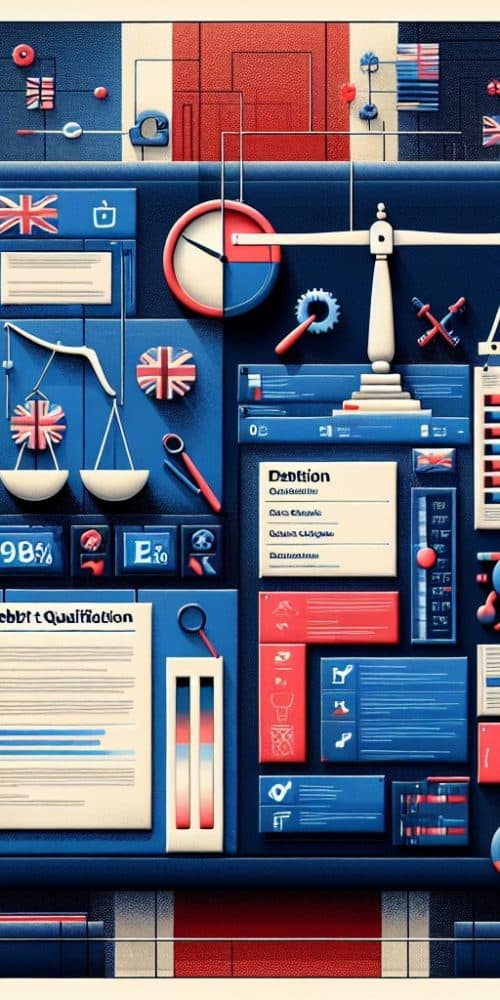Encountering debt collectors can be a profoundly unsettling experience, and it’s something we truly hope you never have to face. Understanding your position is crucial when dealing with these situations.
Debt recovery agents often employ various tactics to mislead you, pressuring you into agreeing to payments or asset handovers that are not legally required. If you find yourself being pursued by a debt agency, it is vital to recognize your rights to prevent them from using dishonest and potentially illegal intimidation tactics against you.
It is essential to remember that a debt recovery agency or agent functions under different regulations than debt enforcement officers or bailiffs. Debt collectors have significantly less authority and must operate within the confines of the law, which can empower you during these encounters.
Debt collection agencies possess the same limited legal powers as the original creditor. Initial communications typically occur through letters, phone calls, emails, and text messages, which are standard protocols for the debt collection process.
Even though their letters might allude to potential court action if the debt remains unpaid, it is important to note that debt collectors may legally exaggerate their judicial authority, which can lead to confusion and stress for debtors.
If a lender has referred your debt to a collection agency, it’s crucial to be aware of their rights and limitations to avoid being misled or pressured into unfavorable agreements.
 Understanding Debt Collectors’ Rights to Visit Your Home
Understanding Debt Collectors’ Rights to Visit Your Home
Debt collectors, whether they are directly employed by your lender or are part of a private collection agency, possess the legal right to visit your home. However, there are strict limitations regarding what actions they can take during such doorstep visits, which you should be aware of to protect yourself.
It is illegal for a recovery agent to impersonate a bailiff or sheriff, and if they do so, you may have grounds for legal action against them, as this constitutes a criminal offense. Being informed of these laws can help you stand your ground.
Although it is common for debt collectors to reach out via phone or mail rather than through face-to-face meetings, if they do show up at your door, you are under no obligation to answer or allow them entry into your home. Always prioritize your safety and comfort in these situations.
If you request identification from a debt collector, they are legally required to provide it. Additionally, they cannot take any of your possessions without your consent, reinforcing your rights in these interactions.
Most importantly, you should not feel pressured to make immediate cash payments to the debt recovery agency. It’s advisable to contact the collection agency to negotiate a payment plan that aligns with your financial capabilities. If you choose to make a payment directly to a collector at your home, always ensure you see their identification first and obtain a receipt to document the transaction.
Clarifying the Limits: Can Debt Collectors Legally Take Your Property?
Individuals employed by a debt recovery service cannot legally enter your home or seize your belongings, including clamping your vehicle. This is a crucial distinction, as bailiffs have different legal powers and can remove items belonging to a debtor under specific circumstances. If a debt collector appears at your doorstep, remember that they do not have the authority to take your possessions without your explicit consent, and you are not obligated to grant them access.
Understanding the Timeframe: How Long Can Creditors Pursue You for Unpaid Debt in the UK?
Ignoring unpaid debts is never a wise choice, and it’s essential to address them proactively. Unresolved debts can lead to significant stress, anxiety, and distress, making it all the more important to tackle the issue as soon as possible.
Your creditor is legally entitled to pursue the debt for an extended period, employing various methods, including engaging debt collectors and bailiffs to recover the funds owed.
According to the Limitation Act 1980, creditors can pursue unpaid unsecured debts for a maximum of six years. This period can extend to twelve years for any mortgage shortfalls, highlighting the importance of dealing with debts promptly.
With consistent pressure from creditors through regular phone calls and correspondence, the six-year limitation on unpaid debts can feel overwhelming. However, it’s crucial to understand that this ‘limitation period’ only begins after your last payment or acknowledgment of the debt.
If you have not admitted the debt in writing within the six or twelve-year timeframe, and there hasn’t been a County Court Judgement (CCJ) against you, the creditor’s ability to enforce the debt may be limited. However, if a CCJ has been registered, the limitation period becomes irrelevant, emphasizing the need for timely debt management.
The Consequences of Ignoring Debt Collection Agencies: What You Need to Know
While we do not advocate for paying any debt collector who shows up unannounced at your door, we do strongly encourage settling your debts. If you prefer to avoid paying the debt recovery agent directly, kindly refuse their requests for payment and reach out to the original creditor instead.
Contacting the creditor allows you to verify the legitimacy of the debt, ensure transparency regarding where your money is going, and set up a manageable payment plan that suits your financial situation.
You are not legally required to make any payments to the debt collection agency that arrives at your home. However, if you also choose not to repay the creditor, it can lead to severe consequences. The creditor may continue to pursue the debt aggressively, and you could find yourself facing bailiffs at your doorstep or even receiving a County Court Judgement.
If you are under pressure from debt collectors and struggling to secure the necessary funds to settle your debts, consider pursuing a debt consolidation loan. This option can help you eliminate the stress of frequent visits from debt collectors while allowing you to make manageable monthly repayments. For any questions about our debt consolidation services, feel free to call us today at 0333 577 5626 or complete our online contact form, and one of our experts will reach out to assist you.
Explore Additional Resources: What Others Are Reading
 Debt Consolidation and Credit Utilisation Hacks: UK Strategies
Debt Consolidation and Credit Utilisation Hacks: UK Strategies
Debt Consolidation and Credit Utilisation Hacks: UK Strategies
 Does Debt Consolidation Ruin Your Credit: UK Insights
Does Debt Consolidation Ruin Your Credit: UK Insights
Does Debt Consolidation Ruin Your Credit: UK Insights
 Online Forums for Debt Consolidation Tips: UK Focus
Online Forums for Debt Consolidation Tips: UK Focus
Online Forums for Debt Consolidation Tips: UK Focus
 Advanced Debt Consolidation Loan Terms to Know
Advanced Debt Consolidation Loan Terms to Know






